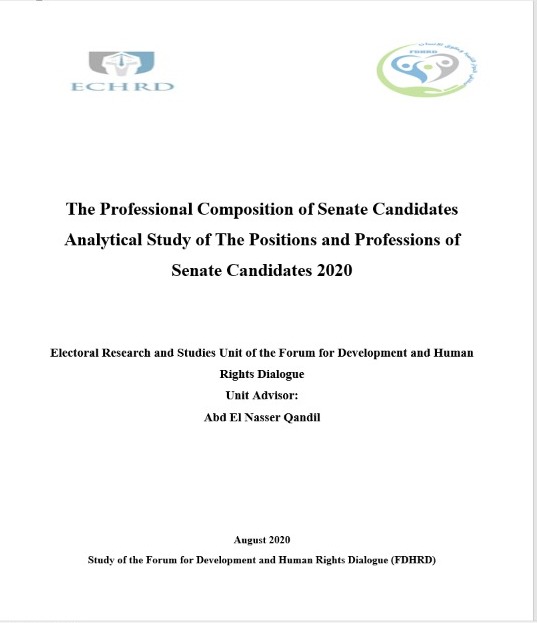press release
Today, Thursday, the Electoral Research and Studies Unit at the FDHRD issued a research paper entitled “Electronic Voting in the Light of the Corona Pandemic.”
The paper initially dealt with the definition of the concept of the electronic voting system, then it presented the most important standards regulating the electronic voting process, which are (the legal or legislative standard, the technical standard: technical tools and supplies, and the social standard: community culture).
The research paper explained that the electronic voting system includes many forms, but the most important of them are two types. The first depends on the method of counting the number of votes recorded on paper in an electronic way. The second type depends on the use of computers to count and count votes automatically without using any papers, which is what It is called the direct electronic election system.
The paper pay attention to the fact that there are a set of advantages provided by the electronic voting system. Most notably that it helps to double the number of voters, as it allows the voter to participate in the electoral process while at home, or while doing his daily work, and it also helps in saving the costs of the voting process, as Paper dealing is abolished, and this system limits fraud operations.
Regarding to the defects of the electronic voting system, the paper clarified that the most prominent of them is the possibility of tampering with the results electronically through piracy.
The paper then referred to the most important methods of electronic voting, and the experiences of countries in using these methods, which are (punch/tab voting systems, scanning systems, and direct electronic registration).
The paper concluded with some recommendation; most importantly:
- Amending the legislation related to the voting process and approving the principles of electronic voting in two stages.
- Voting at polling stations via electronic touch screens as a first stage
- The stage of voting from home through the website of the National Elections Authority through the smart card number and sending a voting code (OPT) to the mobile phone registered on the smart card number
- The devices used in electronic voting should be in accordance with international standards to ensure accuracy and efficiency and to prevent cases of electronic piracy.
- Conducting pre-testing processes before proceeding with its dissemination and selection. This recommendation also includes working on the dissemination of electronic culture among all segments of the people.
- The election administration has an alternative emergency plan to deal with sudden system failures by providing a reserve of alternative equipment and necessary spare parts, and a qualified technical team to deal with maintenance according to the technical condition of the operating system.
In this regard, Saeed Abdel Hafez, Head of the FDHRD, said that the electronic voting process will not affect the validity of the electoral process, but will facilitate its procedures, in addition to the speed in its completion, ease of verification, maintaining social distancing, confronting the virus transmission crisis and reducing voting time.







